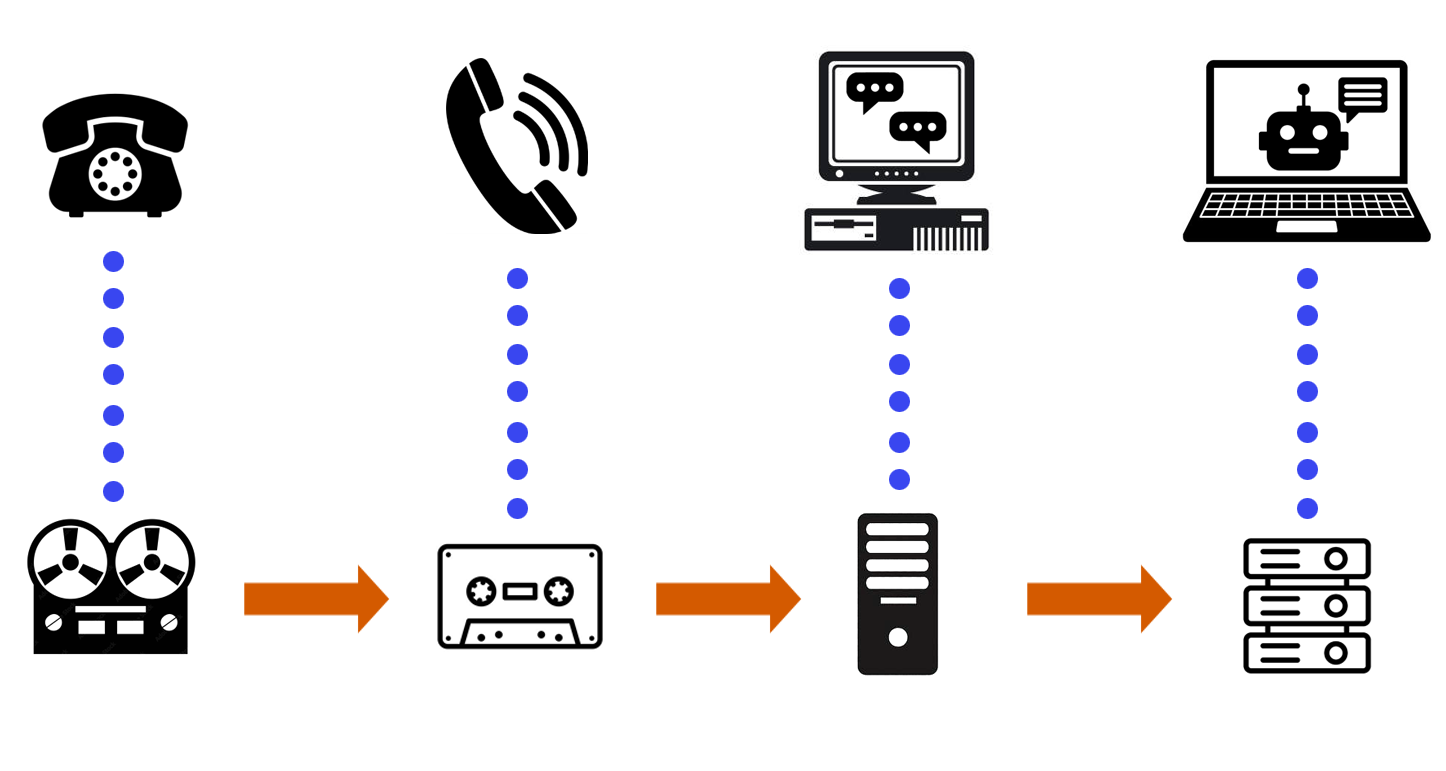The evolution of AI chatting online in e-commerce
Basic automated response systems through phone lines evolved over time into the sophisticated interactions we have today
The Birth of AI in E-commerce
The integration of artificial intelligence (AI) in e-commerce has transformed the industry since its inception. The History of AI Virtual Agents can be traced back to the late 20th century, beginning as basic automated response systems through phone lines that evolved over time into the sophisticated interactions we have today. Early AI agents were primitive, only able to respond using predefined keywords and fail to recognize natural language nuances. As technology advanced, these agents have maturated into complex, adaptable systems capable of understanding and simulating human conversation. This evolution paralleled advancements in computing power, machine learning algorithms, and the accessibility of big data. Thus, e-commerce platforms could use AI to enhance customer experiences, boost operational efficiency, and drive sales growth by providing 24/7 customer support and personalizing online shopping experiences.
Enhancements in Natural Language Processing
A significant leap in AI technology for e-commerce chatbots was achieved with advancements in natural language processing (NLP). NLP allows AI agents to understand, interpret, and produce human language in a valuable way, making conversations with chatbots feel more natural and intuitive. This has enabled AI to not only answer basic queries but also to engage with customers in meaningful ways, discerning context from dialogue and offering personalized recommendations and solutions. AI chatbots have enhanced communication efficiency and paved the way for more personalized customer interaction by analyzing customer purchasing trends and preferences in real-time. As a result, businesses can deliver targeted marketing and elevate e-commerce experiences, fostering a more intimate connection between companies and consumers.
The Role of AI in Customer Relationship Management
AI's role in customer relationship management (CRM) systems has redefined how businesses manage and nurture customer interactions. Advanced AI algorithms integrated with CRM software can evaluate vast quantities of customer data to uncover insights about consumer behavior and preferences. This empowers businesses to anticipate customer needs and offer proactive support as well as tailor product recommendations, thereby increasing conversion rates and customer satisfaction. The capacity to efficiently analyze customer sentiment and feedback also provides companies with the ability to refine their services, enhancing customer retention and brand loyalty. Consequently, AI chatting interfaces are no longer mere conveniences but essential components of strategic business growth in the digital marketplace.
Future Prospects and Challenges
As AI technology continues to evolve, its implications for online commerce are expansive. Future AI-powered chatbots will likely offer even more seamless integrations with IoT (Internet of Things) devices, enabling shopping experiences that are even more interactive and interconnected. However, this evolution is not without challenges. Ensuring data privacy and ethical AI use are significant concerns that companies must address to build and maintain consumer trust. As AI systems become more advanced, there is also the risk of job displacement and ethical dilemmas about the extent of AI's influence over human decision-making. Despite these challenges, the trajectory for AI in e-commerce remains positive, promising continued innovation and enhancement of consumer shopping experiences. Businesses must remain vigilant in balancing technological advancement with ethical considerations to harness AI's full potential responsibly and sustainably.
Get in touch: reach out and share your questions and requests on our contacts page, we’ll get back to you soon.

